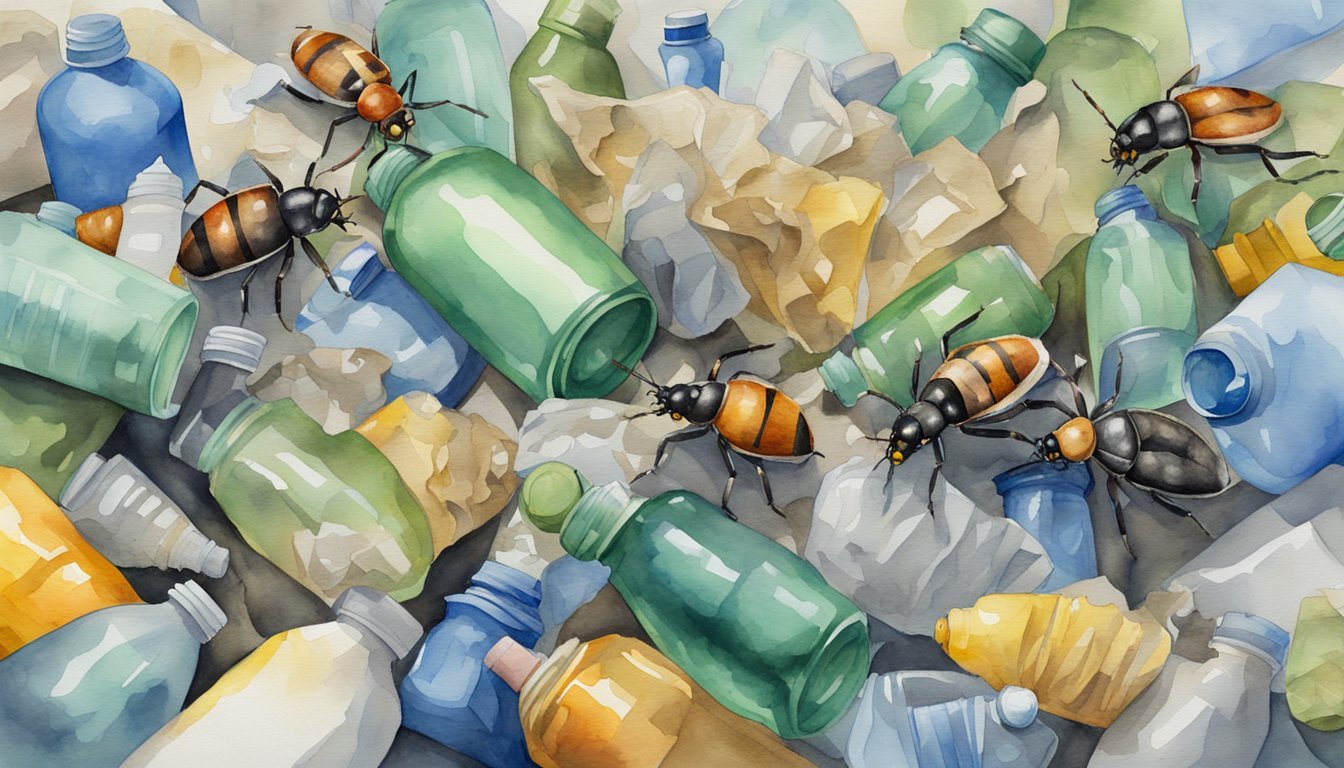Discovering Plastic-Eating Bugs
Recent research has revealed the unexpected role that certain organisms play in addressing plastic pollution. This section delves into different categories of such organisms and their unique capabilities.
The Promise of Microbes
Scientific research has uncovered that microbes in different environments have developed the ability to degrade plastic. These microbial enzymes act as catalysts, breaking down plastic polymers. Studies conducted by scientists, including Jan Zrimec and Aleksej Zelezniak at Chalmers University of Technology, have identified enzyme candidates that could potentially address the global plastic waste issue.
From Soil to Oceans
The global microbiome includes bacterial species found in various ecosystems, from soils to the deepest oceans. This diversity reflects the adaptability of microbes and their capacity to evolve genetic responses to man-made materials like plastic.
The Role of Fungi
Beyond bacteria, studies have shown that various fungi also possess the ability to decompose plastic materials. The enzyme systems within these organisms add another layer of complexity to the microbial communities that can be harnessed for plastic degradation.
Waxworms and Caterpillars
Certain insect larvae, such as waxworms and caterpillars of the greater wax moth, are known for their surprising ability to consume and break down plastic. The larvae of the darkling beetle, also known as mealworms, have similarly been studied for their capability to digest certain types of plastic garbage.
Addressing Plastic Pollution

The battle against plastic pollution is multifaceted, tackling environmental impacts, enhancing recycling methodologies, and fostering research for innovative applications. Our relationship with plastic is at a turning point, and the following subsections detail pivotal areas of development.
Impact on Environmental Health
Plastic pollution has morphed into a dire issue for environmental health, with landfills brimming and oceans as victims of incessant waste dumping. Microplastics and larger debris pose threats to wildlife and ecosystems, disrupting the food chain and habitat conditions. For instance, when animals ingest plastic, it often leads to fatal consequences, affecting species survival and biodiversity. Researchers probing environmental DNA samples from various habitats discovered a surge in microbes that have evolved to metabolize plastics, hinting at nature’s response to this man-made issue.
Advancements in Recycling
Recycling has long been a suggested solution to plastic waste, yet the discovery and engineering of microbes that can consume and break down plastics are revolutionizing the recycling industry. Innovations like the enzyme classes designed by Carbios can infinitely degrade polyethylene terephthalate (PET), commonly found in plastic bottles, transitioning recycling from a mechanical process to a biological one. Such sophistication in recycling can vastly reduce the volume of waste destined for landfills and oceans while recovering valuable materials.
Future Research and Applications
With ongoing research, the prospect of utilizing insects and their microbes to tackle plastic waste is becoming tangible. Although still in the experimental stage, studies highlight organisms like the larvae of wax moths that can degrade polyethylene plastic, a common pollutant. Scaling these biological systems for industrial use could transform plastic waste into a nutrient source, unlocking a new paradigm in waste management and environmental restoration. Scientists continuously mine soil and ocean samples for organisms capable of plastic biodegradation, envisioning a future where nature’s recyclers work hand-in-hand with human-created systems to mitigate the plastic pollution crisis.

